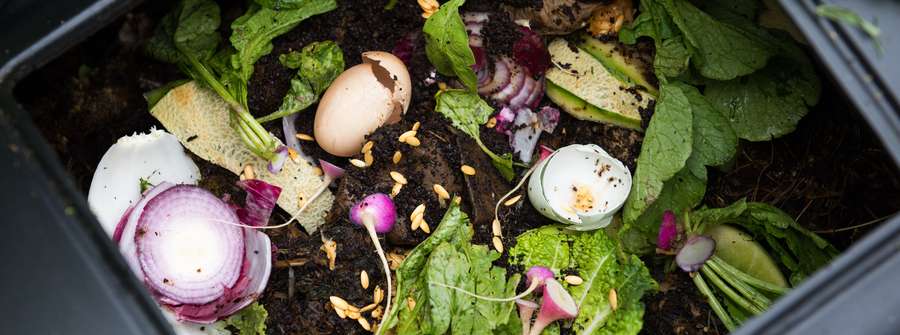How to Make Compost


It’s never too early or too late in the year to start composting, and your crops will love you for it when you do. It’ll feed them with all the nutrients they need, as well as giving you somewhere to discard your organic materials instead of sending them to landfill.
But the question is: how do you make it? Our handy guide will help you learn how to make compost, how long it takes, what to put in your compost bin and what not to.
What is Compost Used For?
Compost is used for fertilising and improving soil. It’s rich in plant nutrients and beneficial organisms like worms, which aid soil health and provide plants with nutrients to help them thrive. You can either buy ready-made compost, or make your own.
How to Make a Compost Bin
Creating compost is really easy and is made best in bins, rather than open heaps, as they’re better at keeping in warmth and moisture, which helps speed things up. Opt for a bin with an open base, like this Zest4Leisure Composter, which allows for drainage so that worms and micro-organisms can access the compost and help break it down. If your bin has a hard base, add a layer of soil to the bottom before you add the compost.
To make compost, you should aim to add an even mixture of nitrogen-rich green materials like grass, weeds and veg peelings and carbon-rich brown materials, like hedge trimmings, paper and straw. Too much green and you’ll end up with a slimy, smelly mess; too much brown and the compost will be too dry, making the process super-slow. If you do find yourself with a heap like this, you can always buy activators to make up for the lack of brown/green waste.
Make sure you’ve got a good composter to contain your heap – we have plenty of different types and sizes to suit your needs.


What Can You Put in a Compost Bin?
There are plenty of things you can put in a compost bin, which vary from green waste, like grass clippings from your lawn, to brown waste which is woodier in nature. Some of the best things to put in your compost bin include:
Green waste
- Grass clippings
- Leafy weeds
- Teabags
- Coffee grounds
- Fruit and veg peelings
Brown waste
- Wood
- Shredded prunings
- Hedge trimmings
- Straw
- Sawdust
- Torn-up cardboard
- Loosely scrunched-up paper or newspaper
- Paper towels
- Dead leaves
Also add
- Eggshells
- Wool or cotton fibres
What Can’t You Put in a Compost Bin?
There are a few things that shouldn’t be added to a compost bin so as to achieve the nutrient-rich fertiliser you’re aiming for. This includes quite a lot of food scraps from the kitchen, so be sure not to add all your leftovers to your compost or you’ll end up with a less-than-ideal heap!
- Meat or fish scraps
- Diseased plants
- Perennial or seedling weeds
- Cooked food
- Dairy products
- Cat or dog faeces
- Colour-printed paper
How Long Does Compost Take?
Compost takes between six months and two years to reach its highest quality. Mature compost will be dark brown and crumbly with a soil-like texture. If some of the material in your heap hasn’t quite broken down, that’s okay– it can be added to the next round of compost.
Compost needs air, so to speed up the process, give the heap a turn once a month to introduce some. If it’s too wet, the process will be much slower and will result in slimy, strong-smelling compost. Combat this by adding more brown materials like woody clippings or paper, and covering the heap to protect against rain. It’s a good idea to choose a composter with a lid, such as the Garantia 600L Thermo Wood Composter.
If the weather is hot and dry, make sure you keep the heap moist for the speediest results. If you find your compost is too dry, it won’t rot the same, so add more green material like grass clippings.
After a minimum of six months, the compost will turn brown and crumbly, which is your cue to feed it to your plants and watch them thrive.
So, now you know how to make compost, make sure you keep your heap moist, yet aerated, add lots of green and brown materials in equal measure, choose the right compost bin and you’ll be on the road to success. Follow this advice and you’ll soon have perfectly crumbly, highly nutritious compost to feed to your plants for a thriving, healthy garden.










